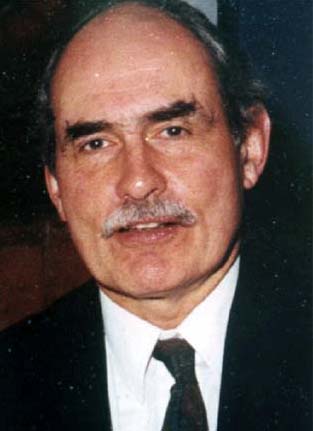
Peru RPCV David Scott Palmer discusses the Political Situation in Peru
Peru's two most powerful men of the last decade might be gone, but the institutions they controlled remain. So how difficult will it be for the next president to fix the damage? David Scott Palmer has written several books about Peru's political and military history. He's also the chairman of Boston University's department of political science.
David Scott Palmer, thank you for joining us, and welcome to the program.
DAVID SCOTT PALMER, BOSTON UNIVERSITY: Thank you.
MAKGABO: First of all, trying to deal with the two men believed to have been the most powerful in Peru who are now both left the country, can you give us a sense of how corrupt the system of government in Peru really is?
PALMER: Well, it certainly was much deeper and much more pervasive than anyone had expected. The estimates now, based on offshore accounts that have been uncovered and projections, run in the neighborhood of $800 million to $1 billion that was siphoned off by various officials in the regime.
MAKGABO: Now one point of concern perhaps to anybody looking in and looking at the stories that we've been hearing from Peru in the recent past few months is that both Fujimori and Montesinos have left their legacies within the system of government in Peru, in particular Vladimiro Montesinos who, at this stage, remains at large. No one knows where he is.
And yet it seems that he somehow still manages to be in touch with those in power in Peru. How does that work in light of this new election?
PALMER: Well, certainly it's a very complex situation. But I think we should also focus on the degree to which the transitional government has been able to purge the institutions most affected by Montesinos in particular. The military - several hundred officers retired and some arrested. So there is progress being made. But it's clear that Montesinos still has an influence in some circles, though I think the institutionalists are again on the rise within the Peruvian military and police establishments.
MAKGABO: Now you mentioned some of the spheres that perhaps have been purged of those influences. Is it a system in Peru whereby people who are in politics, who are in the various political parties perhaps have a long history of doing so? So this type of behavior, perhaps the corruption and the irregularities in elections, is not something that's new, that's been there for years and years and years. And though the leader might change, the system might not.
PALMER: Well, I think what happened in Peru was that over the course of the 1990s, the system became more and more affected by corruption. One of the ironies is that one of the three leading candidates for the elections this Sunday is a former president of Peru, Alan Garcia, who himself was accused of serious corruption during his administration.
I think there is a sense that no one appreciated the degree and the depth of the corruption, nor the degree of manipulation of the electoral system and serious efforts have been made to cleanse out the system, make it more transparent. And I think we're going to see on Sunday a much more open and a genuine reflection of popular will.
MAKGABO: So what kind of pressure then does the new president of Peru face when he comes into office from the international community in light of this corruption?
PALMER: This will be a severe test of the new president, whomever that might be. The economic situation in Peru is precarious. There is a recession. There are some serious difficulties. Most foreign investors and would-be investors are waiting to see how the election turns out. So I believe it will be a very difficult period.
Debt repayments are very severe over the next two or three years. So there will be serious negotiations with the international financial community. No, there are serious challenges still ahead.
MAKGABO: And how much support will the new president have from the people of Peru because they are, no doubt, very disillusioned in light of the situation left behind by Vladimiro Montesinos and Alberto Fujimori.
PALMER: Yes, that's very true. But I think we should not underestimate the degree of satisfaction and hope that a significant proportion of the population feels at being able to turn the system around, to force the resignation of Fujimori and his removal from power. And the new government has worked against very difficult odds to establish its legitimacy, its credibility.
And I think there will be a sense of catharsis and relief on the part of the majority of the Peruvian population.
MAKGABO: David Scott Palmer, thank you very much for joining us.
PALMER: My pleasure.
MAKGABO: And that's INSIGHT for this day. I'm Tumi Makgabo. Thanks for watching. The news on CNN continues.
END
